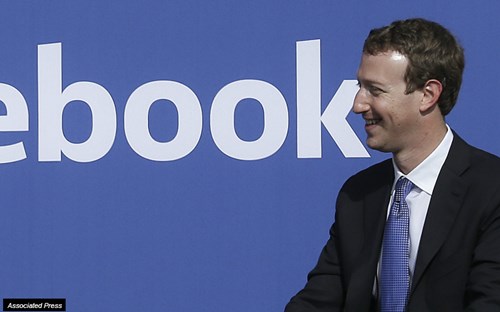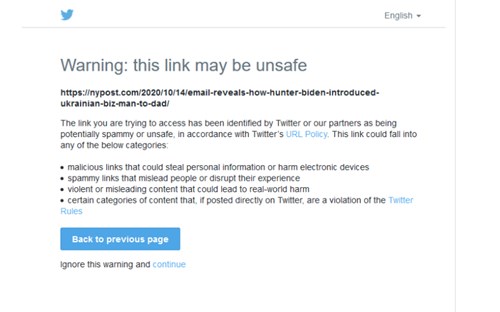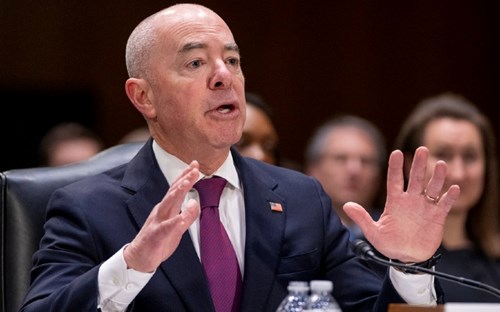The super-wealthy CEO of Meta, the social media conglomerate that operates powerful Facebook, has admitted to some enormous wrongdoing in a letter this week to Jim Jordan, chair of the House Judiciary Committee. He confirmed pressure from the Biden administration to censure user posts on COVID-19 information.
“I believe the government pressure was wrong, and I regret that we were not more outspoken about it,” Zuckerberg belatedly wrote.
He also admitted wrongdoing in Facebook’s “demotion” of a New York Post story on Biden family corruption allegations, saying the decision was made to withhold the while awaiting a reply from unnamed fact-checkers.
Meta not alone in censorship
It’s important to remember that Zuckerburg’s company is not alone in censorship, Jake Denton, the research associate in Tech Policy Center at The Heritage Foundation, said on American Family Radio Wednesday.
 “Since the Twitter files broke, we’ve seen this is a problem that’s running rampant in Silicon Valley. Facebook, Meta, they’re not alone in their correspondence with government and bending the knee to the censorship requests,” Denton told show host Jenna Ellis.
“Since the Twitter files broke, we’ve seen this is a problem that’s running rampant in Silicon Valley. Facebook, Meta, they’re not alone in their correspondence with government and bending the knee to the censorship requests,” Denton told show host Jenna Ellis.
Zuckerberg also addressed Zuckerbucks, the hundreds of millions of dollars contributed in the name of support for “electoral infrastructure” in 2020. He disputed claims that his contributions favored Democrats, which has nonetheless been proven true, but said his goal now is to remain neutral and avoid any appearance of favoritism.
As such, Zuckerberg said he doesn’t plan on making a “similar contribution” this election cycle.
 He did not admit intentional wrongdoing regarding the Biden story or Zuckerbucks but simply offered his explanation.
He did not admit intentional wrongdoing regarding the Biden story or Zuckerbucks but simply offered his explanation.
“It’s too little too late quite frankly,” Rep. Andy Biggs (R-Arizona) told Jody Hice, host of the Washington Watch news program, Tuesday. “I get what Zuckerberg is trying to do, he’s trying to say mea culpa, but he waited, oddly enough for several years, but we all knew what was going on.”
Mayorkas vs 'what the emails show'
Zuckerberg’s admission of White House pressure contradicts Congressional testimony by Homeland Security Sec. Alejandro Mayorkas in 2022. Appearing on Capitol Hill, Mayorkas, in an exchange with Sen. Josh Hawley (R-Missouri), the secretary denied Hawley’s contention that DHS coordinated the censorship, “pressuring coercing” social media companies.
 “That is unequivocally false,” Mayorkas said.
“That is unequivocally false,” Mayorkas said.
“It’s what the emails show,” Hawley said.
“That is unequivocally false, Senator,” Mayorkas responded.
“You were not pressuring the Big Tech companies to take down accounts, you were not meeting with them to ask them to censor on your behalf?” Hawley asked.
“That is correct, we are not,” Mayorkas said.
Biden admins duck and dodge response
The administration’s approach this week was to avoid the question of coercion and change the topic.
“When confronted with a deadly pandemic, this administration encouraged responsible actions to protect public health and safety," stated an unsigned statement. "Our position has been clear and consistent. We believe tech companies and other private actors should take into account the effects their actions have on the American people, while making independent choices about the information they present."

The administration is just trying to distance itself from serious free speech violations, Biggs said.
“This is the problem: that they don’t want accountability. The reality is they were putting pressure not just on that, but they were impacting the election by suppressing the Hunter Biden laptop story, which they claimed was Russian disinformation, and it wasn’t. They knew it was real, they knew it was real for a year, and the FBI did, a year before the election,” he said.
Dan Schneider, of the Media Research Center, has a similar view of the Biden-Harris administration after Zuckerberg's confession.
"This admission is better than nothing," he tells AFN, "but the Biden administration continues to engage in coercive censorship."
The White House must “own” its constitutional violations rather than trying to rewrite events or, once again, control the discussion, Biggs said.
Anything less is a “flat out lie” and underscores “the problem with the current administration.”
“Quite frankly, if you were censored, you should have a claim now under the First Amendment. You can’t walk away and say, ‘Look, we were telling you not to do stuff.’ We’ve got all these emails going back and forth. You can’t say, ‘We were just advising you.’ That’s not true,” Biggs said.
States learned lesson from 'Zuckerbucks'
Turning back to the billionaire and his apology, Zuckerberg is no prince here, Biggs said. Doing the right thing too late is meaningless. Even his pledge to discard Zuckerbucks and remain financially neutral is tainted, the GOP lawmaker insisted.
“Maybe the states that have come out and said, ‘you can’t participate,’ are really influencing him. Again, when somebody’s charged with a crime, and they say, ‘that was bad, but it was legal at the time,’ the problem is it was morally wrong, ethically wrong, and quite frankly, and in my opinion it probably violated the federal statutes of the FEC,” Biggs said.
Twenty-eight states have decided to prohibit or limit private contributions – such as Zuckerbucks – to fund elections, citing concerns for election integrity.

While Zuckerberg may technically remain neutral in 2024, the legacy of Zuckerbucks will live on in many states.
The Center for Tech and Civic Life, the organization through which Zuckerburg’s election contributions were distributed, will make available $2.5 million grants for 20 states this time around.
Denton doesn’t believe Zuckerberg’s letter to the House Judiciary Committee changes anything.
“This whole coming off as a victim is really just kind of a PR play. I don’t think he’s all that upset about what happened to him. He spent hundreds of millions of dollars trying to sway the election. I’m sure he was pretty much happy to go along with the censorship requests as well,” Denton said.







